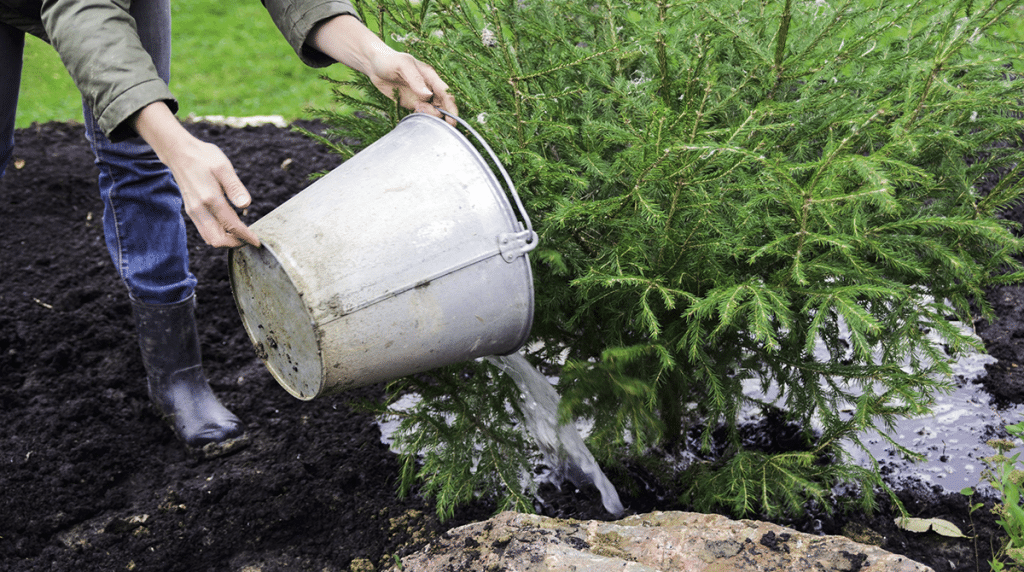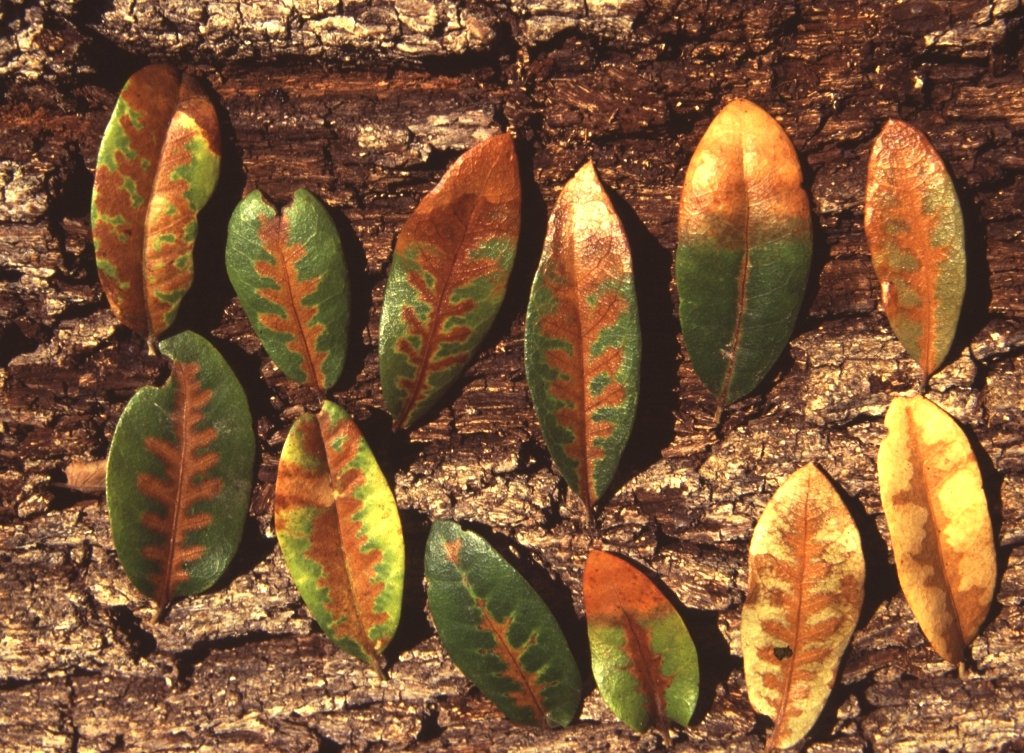
Ask Texas Tree Care Experts: How Should I Water My Trees In Winter?
Date December 10, 2020
Category
Trees may remain dormant in the winter season, but they are still susceptible to cold and dry conditions. Trees can be damaged by winter weather mostly due to lack of water, and dry roots in a tree during the winter season can lead to many issues during the spring season. So even if it seems gray and wintry outside, trees still need a lot of water, or else they will die. Tree watering is essential to keep trees healthy and strong. Below is a list of tips you can follow to help your Texas trees be their healthiest:
Do Dormant Trees Get Dehydrated?
Yes, they do! Cold temperatures and decreased sunlight during the winter season trigger dormancy in trees. Even though dormant trees do not produce new flowers or leaves, they still need oxygen and water. Their roots are always at work and never go dormant. So watering the trees will not wake the trees or alter the dormancy. Rather, it keeps them strong and healthy.
What Happens To Trees During Winter?
During the beginning of the winter season, when temperatures start to go down, trees go into the dormant stage. In this stage, nutrients are no longer used for continuous growth. The tree’s food, which it creates through photosynthesis, is instead transported to the roots for growth and storage. Roots being underground makes it somewhat tricky to properly study them, so there are some things we’re still learning about the storage process within the root system. However, we do know that roots need 32-41 degrees to thrive, but they can survive at temperatures as low as 20 degrees, after which they begin to die. This means that as temperature levels begin to drop, the roots are still growing and need water and oxygen.
How Does Watering During Winter Help?
The soil is naturally insulating, but during cold and dry seasons, it loses these properties. Soil without moisture freezes more quickly and can kill tree roots. These are the essential pathways that transfer nutrients and water from the soil into the tree. Decomposition needs moisture, but if the soil is dry, this process is slowed down, which means it does not enrich the soil. Due to lack of water, the soil organisms that facilitate decomposition die or seek out nutrients elsewhere. For healthy soil, there need to be beneficial organisms and the decomposition of organic matter.
Does Snow Help With Moisturization?
Because ice and snow are not liquid forms of water, accumulated snow on the soil’s surface does not add any moisture to the soil until it melts. Also, snow does not contain a lot of water. It takes 10 inches of melted snow to create 1 inch of water. In places like North Texas, where we don’t get a lot of snow but do get a lot of dry winter wind, the soil is exposed to even more potential dehydration.
Do All Types Of Trees Get Dehydrated During Winter?
One of the worst things you can do when planting new trees does not provide enough water. Young and newly planted trees need a lot of attention. Whether trees are deciduous or evergreen, they all need water.
- Young Trees- Newly planted trees have a small root system. The root systems take time to mature and stretch into the soil. For a tree to get adequate water and nutrients to grow, they need roots to develop. Dry soil affects young plants the most. If they lack water, winter can kill their root system, which they cannot recover from.
- Old Trees- They have an established root system, and most of the time they will independently find water in the surrounding soil area. They are not affected by winter as much as young trees. However, they should also not be ignored during the windy, cold, and dry winter weather.
- Coniferous Trees- Whether young or old, they all need water. Although they need less water, they still need water to survive and keep their leaves alive for photosynthesis.
How To Water Trees During Winter?
Winter tree care includes the following:
- You should continuously water trees during the fall season until the ground starts to freeze. You need to monitor the weather after the ground freezes.
- Water protects both the tree and soil from the harsh conditions. If the soil stays moist and warm, the plant cells are less susceptible to winter damage. Dormant trees do not require regular watering compared to the growing season.
- It would help if you watered your trees one or two times in a month when there is minimal snow coverage or none at all until they begin to leaf out during spring. If your area is very windy, your trees need more water.
- After the ground thaws during spring, return to the normal tree care schedule.
- It would be best if you also watered when temperatures are above 40 degrees Fahrenheit with no snow on the ground.
- Water during the early morning: the plants absorb enough water before temperature levels go down at night.
- Young trees need regular watering.
- You can test the soil’s moisture by inserting a garden trowel into the ground around the tree to a depth of 2″. Use your finger to touch the soil, and if you feel that it is moist, it means that they do not need water.
- Pour adequate water all over the tree’s root coverage.
Mulching
It is important to mulch trees to protect soil from loss of moisture and regulation of temperatures throughout winter. If a plant site is exposed to thawing and freezing, the soil will crack, which results in overly dried roots. Mulch acts like a blanket and protects the soil from cracking.
Watering Young Trees
You should ensure that young trees and newly planted trees are well watered throughout the fall and summer until the ground freezes. Then they should continue to be watered throughout the winter season when there is no snow cover.
Evergreens
Dry and cold seasons strip away water from evergreen trees faster than the roots can absorb. This means they require extra watering during the fall in order to store up moisture before winter. Water your evergreen trees well during the fall, and continue to water your evergreens during dry spells in winter.
Your trees will thank you for watering them during spring. Tree maintenance is crucial to keep your trees healthy and alive this winter, and you will get amazing results during spring.
Your neighbors at TreeNewal are here to help you. To reach our ISA Certified Arborists for professional tree maintenance and tree services, or even if you just have some questions, give us a call today at tel:(817) 592-6846
To learn more about Ask Texas Tree Care Experts: How Should I Water My Trees In Winter?, call our Argyle and Southlake based teams
at tel:(817) 592-6846 or send us a message.
We’re a little different than the average tree services company.
Learn more about TreeNewal’s ISA Certified Arborists!
Our Dallas/Fort Worth-based tree doctors can explain how sustainable tree care services add more value to your bottom line.
Healthy trees, healthy lives.







